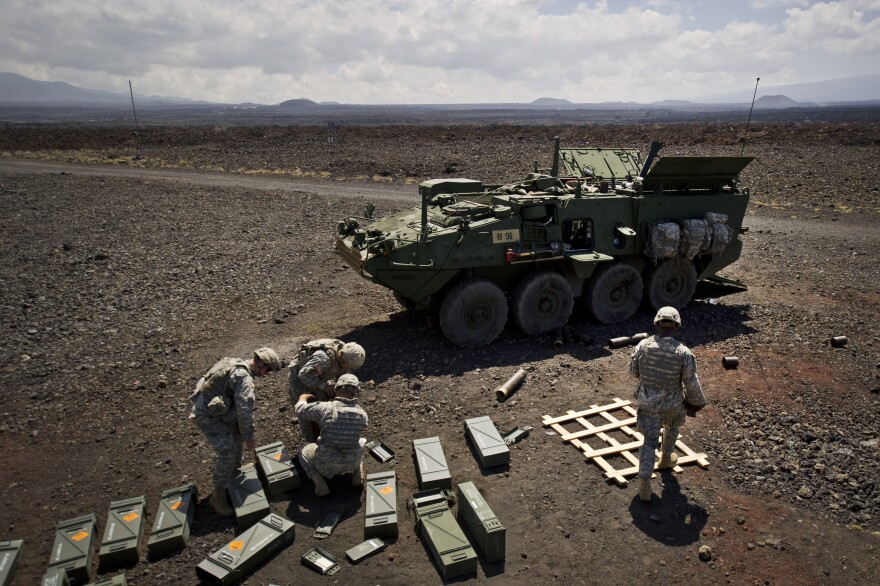The U.S. Army is proposing to renew its lease of nearly 30,000 acres of state-owned land used for training. Military leaders say the training areas are important for national security, while others want the land to be returned to the state for public use.
The lands include 6,300 acres across Kahuku Training Area, Poamoho Training Area and Makua Military Reservation on Oʻahu, and 23,000 acres at Pohakuloa Training Area on Hawaiʻi Island. In total, Pohakuloa encompasses nearly 110,000 acres, the largest military installation in the Pacific region.
The military first obtained the land in 1964 for $1 — that lease expires in 2029.
The history of the U.S. military in Hawaiʻi is a long and complicated one. American warships were sent to defend Hawaiʻi's independence during a five-month occupation by the British in 1843. In 1893, after Queen Liliʻuokalani was deposed, 162 armed American sailors and marines landed on Oʻahu to support the new government.
Today, Hawaiʻi has 11 bases and the military is one of the state's largest employers.
Military leaders say training areas, like Pohakuloa, are important for national security and the overall readiness of the military.
"Central adversaries, they look at readiness and they look at the training that the Army and the broader joint force conducts, and that has a deterrent value," said Lt. Col. Kevin Cronin, Commander of U.S. Army Garrison Pohakuloa Training Area. "Our adversaries are always watching."
"The gold standard for training is to get as close as possible as you can to the conditions that you'll find in combat," he added. "I think that's what we come very close to doing here at Pohakuloa."
Not everyone agrees that the military should retain the 30,000 acres.
Honolulu resident and retired Army Col. Ann Wright served in the Army and the Army Reserves for nearly three decades. She was also a U.S. diplomat for 16 years in various embassies around the world.
Wright says the military should return the land to the state.
"I'm very well aware of the national security concerns of our country. However, I'm also very well aware that the U.S. military generally wants as much as it can get on anything, whether it's weapons or land or whatever," Wright told Hawaiʻi Public Radio.
She says the military's actions do not demonstrate they have a great concern for local communities, their culture, and their history. She says the military has plenty of lands available to them even without the 30,000 acres, such as the thousands of acres at Schofield Barracks, Kaneohe Marine Corps Base, and Pearl Harbor.
"It's not like not leasing these 30,000 acres means that the U.S. military is being kicked out of Hawaiʻi, at all. The fact [is] that it got a free deal 65 years ago. And it's time that a rational look is made at what is really necessary for military exercises," Wright said.
During a recent public scoping meeting, Wright said she did not hear a comment saying the military should retain control of the lands. Some people brought up concerns about the environmental degradation of the lands, the endangerment of species, and the destruction of cultural properties, she said.
"The U.S. needs to be looking more on diplomatic ways to resolve situations rather than using our U.S. military," she said.
The public comment period for the Army’s proposal to retain its lease of the 30,000 acres on Oʻahu and Hawaiʻi Island closes on Sept. 1.
These interviews aired on The Conversation on Aug. 24, 2021.







